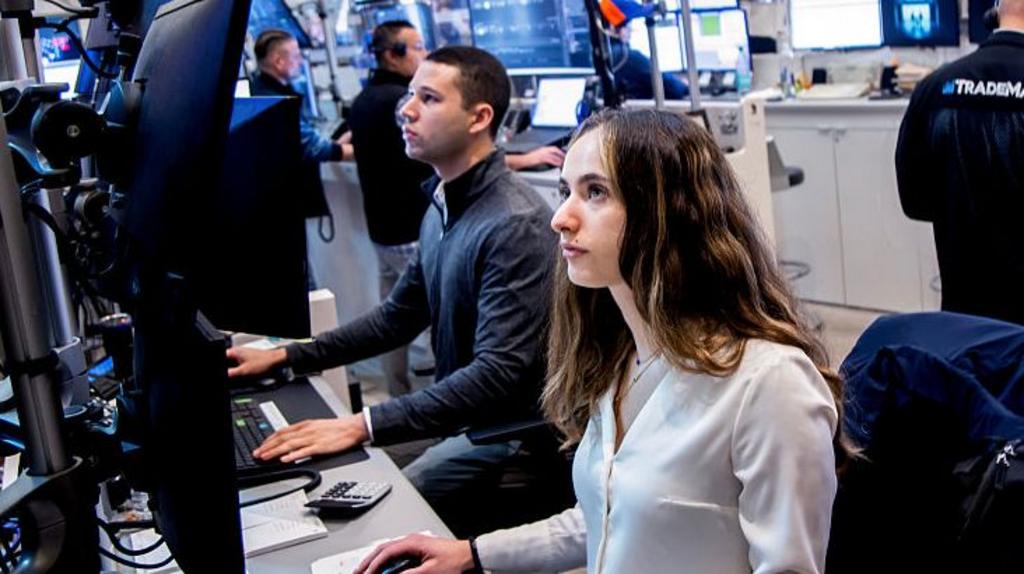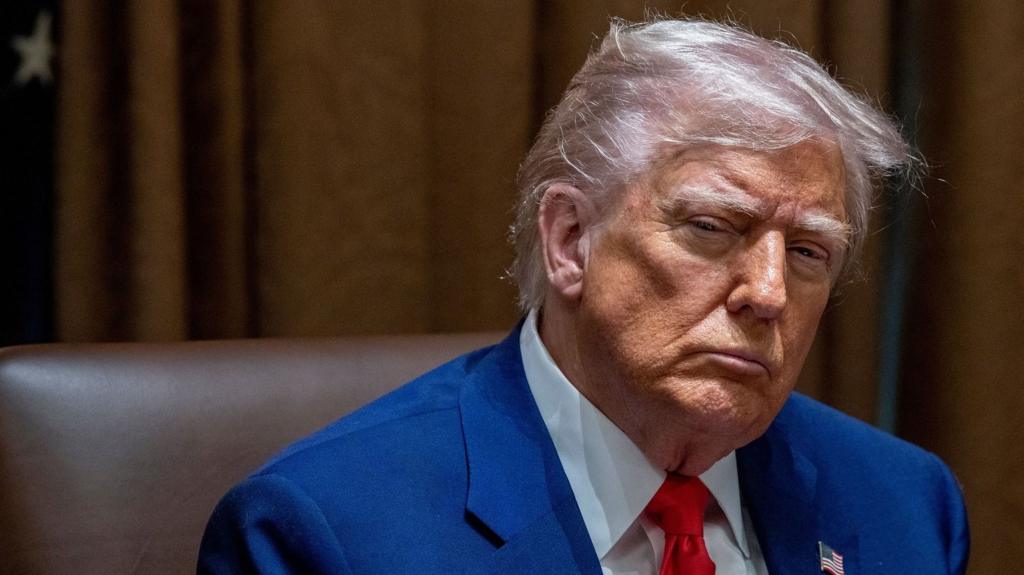Donald Trump has said there will “always be transition problems” and “difficulty” as markets fell again amid continued uncertainty over the US president’s global tariff war.
His statement on Thursday comes hours after the White House said that tariffs on China would reach 145% for some products due to a pre-existing 20% levy imposed on those producing the drug fentanyl.
Despite this, Trump said he was still hoping to secure a deal with China. “I think we’ll end up working something out that’s very good for both countries. I look forward to it,” he said.
Meanwhile, markets continued to face a turbulent time on Thursday, following Trump’s 10% tariff announcement for all countries except China.
Trump on Wednesday paused his threat to impose tariffs as high as 50% on “worst offender” countries, but pressed on with his trade war with China.
Beijing has shown no sign of backing down, this week increasing its retaliatory tariffs to 84% on American products.
The three major US stock markets managed to regain some initial ground early on Thursday. However by closing, the S&P 500 lost 3.6%, the Dow Jones 2.5% and the Nasdaq 4.31%. Warner Bros Discovery shares fell 14% on Thursday, while Amazon and Apple who were both down 7%.
In a televised cabinet meeting, Trump said there would “always be transition difficulty” but added that “it was the biggest day in history in markets”.
He said that investors were happy with how the US was running and that they were “trying to get the world to treat us fairly”.
He claimed that “everybody wants to come and make a deal” to reduce tariffs.
Echoing Trump’s statements in the meeting, Commerce Secretary Howard Lutnick said that many countries were coming to talk and that they’d come with “offers they never would have” if it was not for the president’s policies.
“We’re getting the respect we deserve now,” he added. “I think you’re going to see historic deals one after the other.”
Trump said the US would “love to be able to work a deal (with China)”, adding that he had “great respect for President Xi” and thought that they would “end up working something out that’s very good for both countries”.
However, he repeated his claims that China had “taken advantage” and “ripped off” the US “more than anybody” for a long time.
China announced that it would cut the number of American-made films shown in its cinemas, and claimed the tariff dispute has dampened audience appetite for Hollywood.
Beijing already restricts US releases to 34 a year, and Hollywood has become less important in China as homegrown films increase in popularity.
The European Union meanwhile said it would be pausing the countermeasures it had planned to impose on the US from 15 April also for 90 days.
Twenty-six EU member states – all bar Hungary – had voted to impose retaliatory tariffs on Wednesday if the US imposed its levy of 20%.
In a statement, European Commission President Ursula von der Leyen said that the EU wanted “to give negotiations a chance”.
Donald Trump’s return to the White House has created flashpoints between the North American neighbours.
The green card holder was held “in direct retaliation” for his role in campus protests, says his lawyer.
“The university will not surrender its independence or relinquish its constitutional rights,” the university says.
The Ohio State Buckeyes team was invited to meet President Donald Trump to celebrate the team’s title-winning season.
Authorities are still investigating a possible motive as the suspect’s mother says he suffered from mental health issues.


